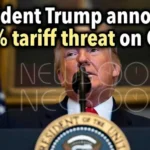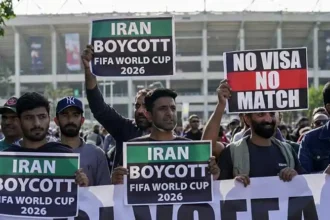Football’s Great Divide: FIFA Moves to Stop League Games From Traveling Overseas
In a quiet but firm move that could reshape the future of professional soccer, FIFA is now actively working to ban domestic league games from being staged on foreign soil. This dramatic step comes after recent approvals for a Spanish La Liga match between Villarreal and Barcelona to be played in Miami this December, and an Italian Serie A fixture between AC Milan and Como to be hosted in Perth, Australia next February.
The potential ban represents more than just a change in sports regulations. It highlights a growing tension between traditional football culture and the modern push for global expansion, between local fans and international markets, between the soul of the game and the allure of money.
More Than Just a Game: Why Football Faces an Identity Crisis
Think of football not just as a sport, but as a local institution. For generations, football clubs have represented cities and communities. The stadium is a symbolic home, the pitch a piece of sacred ground. This proposed ban strikes at the heart of a simple question: can a home game still be “home” when it’s played thousands of miles away?
FIFA’s move comes at a pivotal moment. The governing body of world football is currently redrafting its regulations and seeking legal advice on potentially banning overseas domestic games entirely. They’re working to make their rulebook more robust, targeting new regulations by early 2026.
This isn’t the first time football has wrestled with this idea. Back in 2008, the English Premier League proposed an “international round” of games—a 39th match for each team played abroad. The idea collapsed under fierce fan backlash . But now, with legal settlements opening doors, the concept has returned stronger than ever.
The Stadium as a Hometown
To understand why this matters, imagine your local high school football team suddenly decided to play its biggest game in another state. The community would lose something special—the Friday night lights, the hometown crowd, the sense of shared identity.
This is exactly what European Commissioner Glenn Micallef meant when he called these overseas games a “betrayal” of “local communities and fans.” He explained that for citizens, football “is more than just a competition, it’s about community, friendship, family”.
The players themselves have expressed concerns. Barcelona’s Frenkie de Jong acknowledged that switching venues gives his team an unfair advantage, turning a difficult away game into what effectively becomes a neutral-site match. Milan’s Adrien Rabiot was even more direct, calling the decision “absurd” and noting that it was made “over the players’ heads”.
A Legal and Political Battle
The path to these overseas games hasn’t been smooth. It took a long-running antitrust lawsuit brought by Relevent, a marketing company founded by Miami Dolphins owner Stephen Ross, to eventually settle with FIFA and the U.S. Soccer Federation. This settlement effectively made it difficult for football authorities to object to overseas league games.
UEFA, European football’s governing body, only gave its approval “reluctantly” . In a news release titled “UEFA confirms its opposition to domestic league matches played abroad,” president Aleksander Čeferin stated clearly that “league matches should be played on home soil” because anything else would “disenfranchise loyal match-going fans and potentially introduce distortive elements in competitions”.
So why did UEFA approve it at all? The organization claims the current regulatory framework isn’t “clear and detailed enough,” leaving them with little choice but to allow these games on an “exceptional basis”.
You Might Like it: FIFA WorldCup 2026 ticket prices
What Happens Next?
The financial incentives are substantial—Barcelona and Villarreal are reportedly splitting around $12 million for their Miami game, with Milan and Como earning about $10 million for their Australian fixture . But when compared to Barcelona’s estimated billion-dollar revenue this season, this represents just over half a percent of their income , leading many to wonder if the payoff is worth the controversy.
FIFA’s potential ban faces legal complexities that may complicate efforts to impose an outright prohibition . The existing rules, established in 2014, weren’t designed to address the modern trend of leagues staging matches abroad . They currently allow such games provided they’re authorized by the football associations of both the participating clubs and the host territory, plus their respective continental confederations.
As football stands at this crossroads, the fundamental question remains: should football prioritize growing its global brand or protecting its local roots? Can it do both?
FIFA’s proposed ban represents more than just a policy change—it’s a statement about what football should be. The decision will ultimately affect not just where games are played, but who gets to watch them live, which communities benefit, and what values the world’s most popular sport will champion in the years to come.
The outcome of this debate will determine whether a child in Miami will watch Barcelona while a fan in Spain misses their home team, or whether the traditional rhythms and geography of football will be preserved against the pressures of globalization.
Author: Yasir Khan
Date: 11 Oct, 2025
For More Updates, Visit Newsneck














One Comment
Your point of view caught my eye and was very interesting. Thanks. I have a question for you.